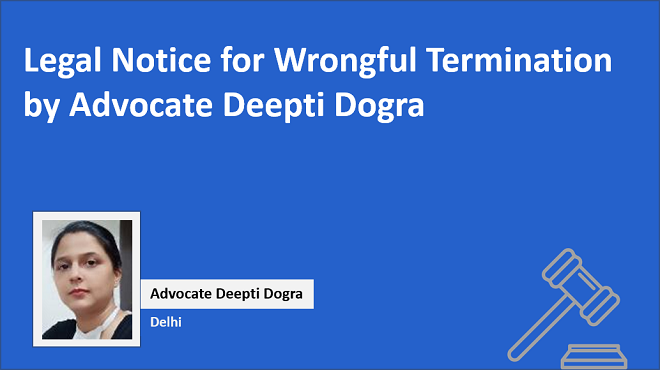Difference between Lawyer and Advocate
November 15, 2023Table of Contents
Who is an Advocate?
The definition of advocate has been given under Section 2(1)(a) of the Advocates Act, according to it an advocate helps those in need of legal assistance by providing legal counsel, advocating for clients in court, and doing pro bono activities. They are those who have legal degrees and are qualified to represent their clients in court as they have the licence given by Bar Council of India
What Does an Advocate Do?
Advocates are skilled lawyers with specialised knowledge of the law who are trained to represent their clients in court. These customers may include both private individuals and corporate or banking institutions. In India, being an advocate requires a demanding process that includes getting a licence to practise law and professional certification from a recognised law programme. Advocates are given the required licence to practise law after completing the Bar Council of India test.
Who is a Lawyer?
A lawyer includes those working in the legal profession, such as solicitors and barristers. Their duties normally do not include defending clients in court. To be precise, the term & quot lawyer& quot is used to refer to all members of the legal profession, regardless of their particular roles. It refers to somebody who has a law degree. There are several different sorts of lawyers, each specialising in a particular area of law, including advocates, solicitors, and solicitors. It's crucial to remember that not all lawyers are qualified to represent clients in court.
What Does a Lawyer Do?
A lawyer is a person with legal training and a license who can advise and represent clients in legal matters. Lawyers can provide advice, conduct research, draught documents, negotiate, and represent clients in court because they have a thorough understanding of legal principles and procedures. They collaborate closely with clients, drawing on their strong communication and analytical abilities to produce desirable results while upholding moral principles.
Basic Difference between a Lawyer and an Advocate
“ All Advocates are Lawyers but all Lawyers are not Advocates” Understanding this statement is very important to understand the basic difference between a Lawyer and an Advocate. Let us understand the concept from the extreme basic, i.e., the study of law and the study of an advocate.
Key Differences Between Lawyer Vs. Advocate
The following list outlines the main distinctions between a lawyer and an advocate:
- Definition
Lawyer - A lawyer is a person who has completed their law degree from an affiliated college
- Responsibility
Lawyer - Provide legal advice, research, and document drafting, for example- contracts.
- Experience
Lawyer - Generally, recent law school graduates with limited experience. They usually have experience in office workings
- Fee
Lawyer - usually charge less because they have less experience
- Bar Admission
Lawyer - The Bar Council of India does not have any authority over the behaviour of lawyers, and not all lawyers are eligible or required to be admitted to the bar.
Which Is A Better Profession, A Lawyer Or An Advocate?
You can choose between these two occupations based on your background and credentials. An entry-level position, suited for recent LLB graduates, is often that of a lawyer. To get your practice licence in this position, you might need to pass an exam.
These guides are not legal advice, nor a substitute for a lawyer
These articles are provided freely as general guides. While we do our best
to make sure these guides are helpful, we do not give any guarantee that
they are accurate or appropriate to your situation, or take any
responsibility for any loss their use might cause you. Do not rely on
information provided here without seeking experienced legal advice first. If
in doubt, please always consult a lawyer.
The internet is not a lawyer and neither are you.
Talk
to a real lawyer about your legal issue.

Comments by Users
No Comments! Be the first one to comment.
Related Articles
- Police Clearance Certificate for passport if criminal case pending
- How to file a case through lok adalat?
- How can I convert the panchayat approved land to a DTCP or CMDA
- Case was dismissed due to non appearance can I restore the case
- someone sending the legal notice i have not accepted what will happpen
- How to file a complaint in National Green Tribunal (NGT)? | Civil Law Guide
- Separation of powers in administrative law in India
- OBC Non Creamy Layer Income Limit 2019 Criteria
- punishment for false affidavit
- I got show cause notice from passport office please advise what to do
- What is the validity of an agreement on Rs 10 stamp paper
- What is the basic difference between Section / Rule / Article /Act
- What is the procedure and grounds for filing defamation case
- Have received court challan what to do.
- Police verification for govt job
- How to File Writ Petition?
Civil Law Articles
User Reviews
Had a good time reading the article.
thanks for the information
informative with the law.
how to contact a lawyer for my legal case?
loved the way concept is explained. Nicely written for any layman to understand.
helpful in understanding the law
Very good article
nice article
very detailed and informative
thank you for the information
I have a case. Who can I contact?
Good work with the article.
It’s a very nice article.
solved my queries.
Written plainly to be understood by anyone who is from a non-legal background.
whom to contact for any legal query?
VIEW ALL


 666+ Lawyers are online
666+ Lawyers are online 









_.jpg)